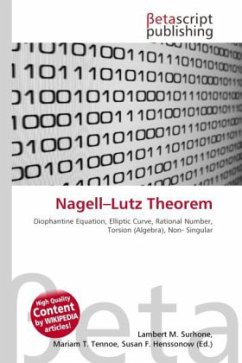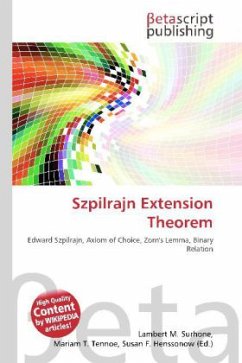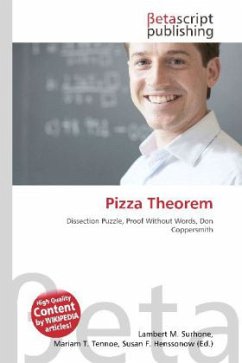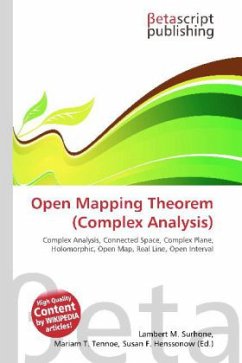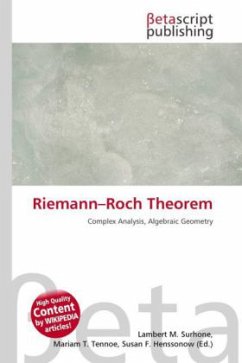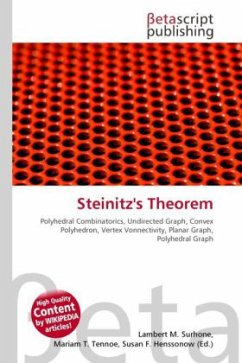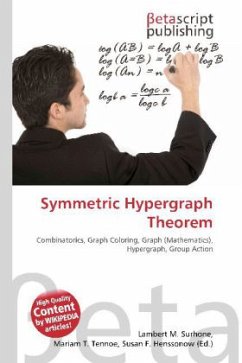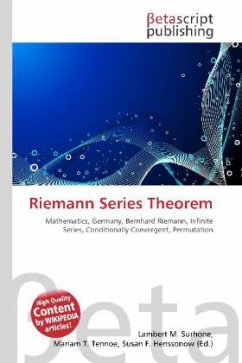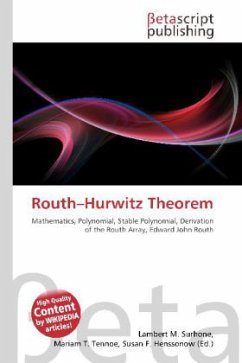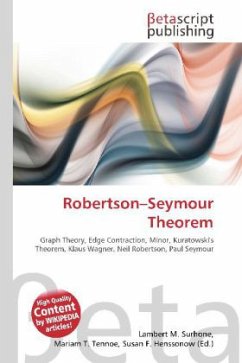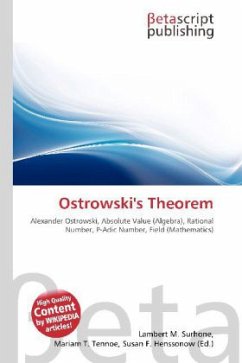
Ostrowski's Theorem
Versandkostenfrei!
Versandfertig in 6-10 Tagen
26,99 €
inkl. MwSt.

PAYBACK Punkte
13 °P sammeln!
Please note that the content of this book primarily consists of articles available from Wikipedia or other free sources online. Ostrowski''s theorem, due to Alexander Ostrowski, states that any non-trivial absolute value on the rational numbers Q is equivalent to either the usual real absolute value or a p-adic absolute value. Since is non-Archimedean, n 1 for all integers n. Also as is non-trivial, there exists an integer n such that n 1 and n = p_1^{e_1} ldots p_r^{e_r} by integer factorization. From this, we can deduce p 1 for some prime p. Suppose for contradiction p, q are distinct primes...
Please note that the content of this book primarily consists of articles available from Wikipedia or other free sources online. Ostrowski''s theorem, due to Alexander Ostrowski, states that any non-trivial absolute value on the rational numbers Q is equivalent to either the usual real absolute value or a p-adic absolute value. Since is non-Archimedean, n 1 for all integers n. Also as is non-trivial, there exists an integer n such that n 1 and n = p_1^{e_1} ldots p_r^{e_r} by integer factorization. From this, we can deduce p 1 for some prime p. Suppose for contradiction p, q are distinct primes with p , q 1. Pick e, f such that p e, q f 1 and write 1 = rpe + sqf for some integers r, s by Bézout''s identity. But then 1 = rpe + sqf max( r , s ) 1, which is a desired contradiction. So must have p = , some 0 1, and q = 1 for all other primes q. Therefore is equivalent to the p-adic absolute value.



